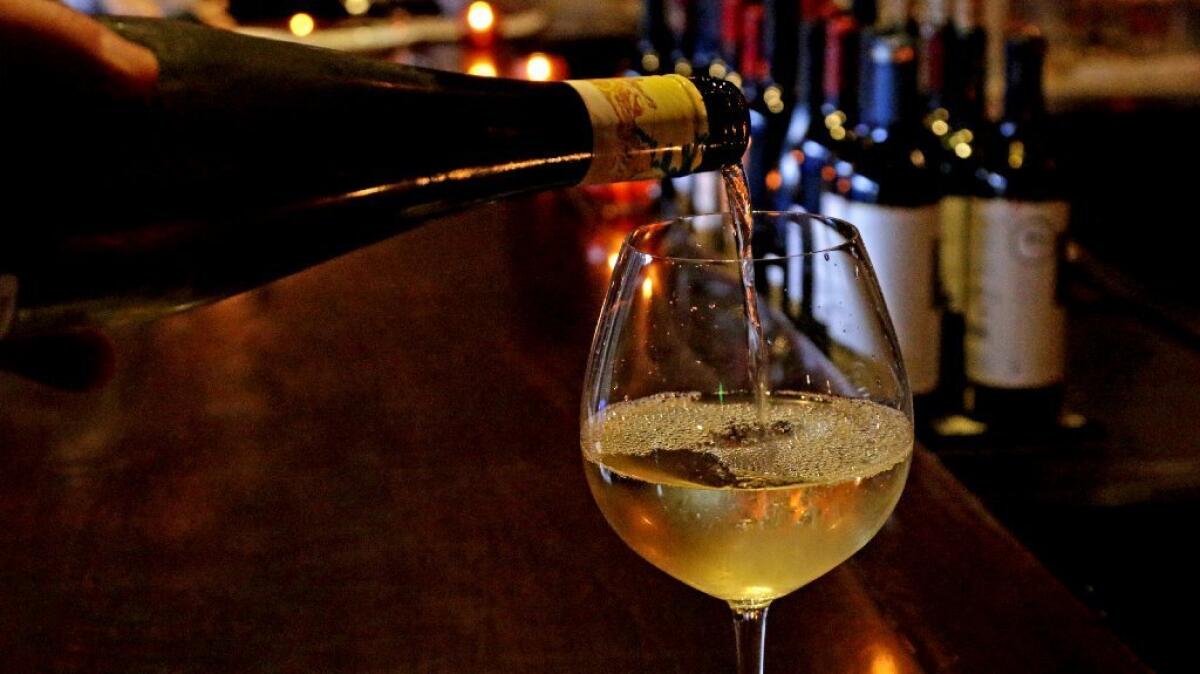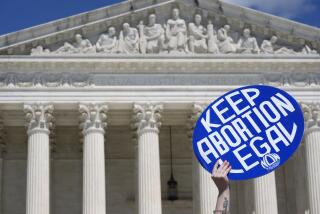One in 10 pregnant women admits to drinking, including binge drinking

A new study from the Centers for Disease Control and Prevention looks at drinking rates during pregnancy.
More than one in 10 pregnant women admitted drinking alcohol in the previous month, including about one in 33 who acknowledged at least one episode of binge-drinking, according to a new report from the Centers for Disease Control and Prevention.
Considering that U.S. health officials have set a goal of eliminating all binge-drinking by pregnant women by the year 2020 and limiting the prevalence of other drinking to only 2%, the findings are not exactly encouraging.
“There is a need for a comprehensive approach to reduce alcohol use and binge drinking among pregnant women,” wrote the report authors, who work in the CDC’s National Center on Birth Defects and Developmental Disabilities and the National Center for Chronic Disease Prevention and Health Promotion.
The researchers arrived at these figures by examining data collected between 2011 and 2013 as part of the Behavioral Risk Factor Surveillance System. Interviewers called a random sample of households from all 50 states and the District of Columbia. They got responses from more than 200,000 women of childbearing age (between 18 and 44 years old), including 8,383 who said they were pregnant.
Drinking was common among women who weren’t pregnant — 53.6% said they had consumed alcohol at least once during the 30 days before their interview. However, when women knew they were pregnant, they were much less likely to drink — 10.2% of them said they had done so in the past 30 days.
In all likelihood, many of these women knew they were flouting medical advice by drinking during pregnancy. Since 1981, the surgeon general has advised pregnant women to abstain from drinking to prevent fetal alcohol syndrome, a condition that combines “severe physical and mental defects.” Even foods and medications that contain alcohol should be avoided, the advisory says. (It was updated in 2005.)
The American College of Obstetricians and Gynecologists agrees, warning that “no amount of alcohol consumption can be considered safe during pregnancy.” Fetal alcohol syndrome is only one side effect of drinking during pregnancy, ACOG says; others include miscarriage and stillbirth.
And yet the more education women had, the more likely they were to admit drinking while pregnant. Among expectant mothers who were college graduates, 13% said they had consumed alcohol in the past 30 days, compared with 7.7% of those who dropped out of high school.
Nor did wisdom come with age. Fully 18.6% of pregnant women between the ages of 35 and 44 said they’d had a drink in the previous month. For all other age groups, the percentage was between 8% and 10%.
The researchers also found that unmarried women were more likely to drink during pregnancy (12.9%) than their married counterparts (7.9%). So were women with jobs (12%) compared to women who were not employed (8.1%).
If some drinking during pregnancy is bad, binge drinking is worse. The CDC defines binge drinking as consuming at least four drinks on a single occasion.
Using that criteria, the BRFSS survey found that 18.2% of non-pregnant women of childbearing age had been binge-drinking in the previous 30 days. So had 3.1% of the pregnant women in the survey.
Binge-drinkers who were pregnant typically drank more than binge-drinkers who weren’t. For instance, the pregnant women reported an average of 4.6 binge-drinking episodes in the previous 30 days, compared with 3.1 episodes for binge-drinking women who weren’t pregnant. In addition, pregnant women averaged more drinks on their most extravagant recent binge (7.5) than women who weren’t pregnant (6).
These trends might be a sign that women who binge-drink even when they are pregnant are more likely to be alcohol-dependent than other binge-drinkers, the report authors speculated.
If anything, the study results probably underestimate the true extent of drinking by pregnant women in America, the researchers wrote. One reason is that people who answer surveys like the BRFSS tend to understate the amount of alcohol they consume. Another reason is that some women were probably in the earliest weeks of pregnancy and didn’t realize it yet; if so, they wouldn’t even have been trying to moderate their drinking.
The study was published Thursday in the CDC’s Morbidity and Mortality Weekly Report.
Follow me on Twitter @LATkarenkaplan and “like” Los Angeles Times Science & Health on Facebook.
MORE IN SCIENCE:
You can thank prehistoric fish for the enamel on your teeth
Oldest decapitated skull in South America had ritual significance
Taking blood pressure drugs at night wards off diabetes, study finds







